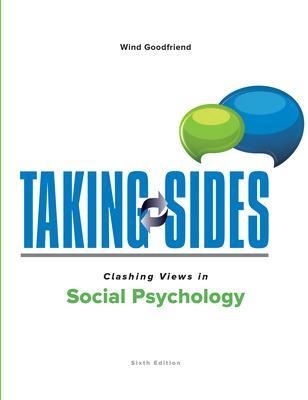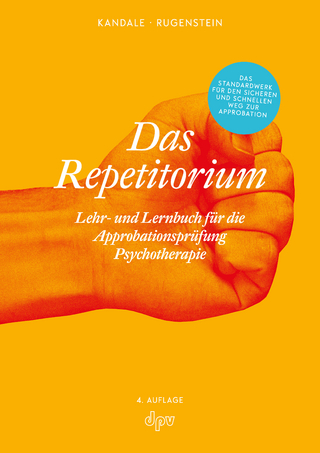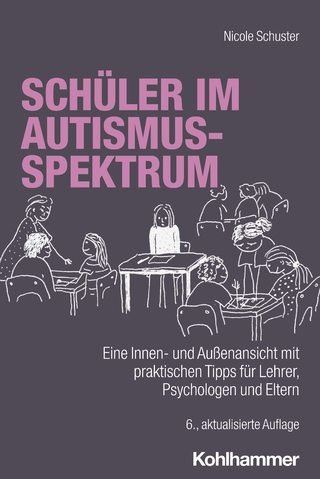
Taking Sides: Clashing Views in Social Psychology
McGraw-Hill Education (Verlag)
978-1-259-87079-8 (ISBN)
- Titel ist leider vergriffen;
keine Neuauflage - Artikel merken
Unit 1: Controversial Theories in Social Psychology
Issue: Is There a “Prejudiced Personality” Type?
Yes: Kevin O. Cokley et al., from "Predicting Student Attitudes About Racial Diversity and Gender Equity," Journal of Diversity in Higher Education (2010)
No: B. Corenblum and Walter G. Stephan, from "White Fears and Native Apprehensions: An Integrated Threat Theory Approach to Intergroup Attitudes," Canadian Journal of Behavioural Science (2001)
Psychologist Kevin O. Cokley et al. present data supporting the idea that three personality traits (social dominance orientation, authoritarianism, and openness to experience) predict college students’ attitudes about racial and gender diversity. Using data from white and Native Canadians, researchers B. Corenblum and Walter G. Stephan argue that prejudice stems from a combination of factors, including feelings of group threat, anxiety, history of intergroup conflict, and more.
Issue: Is Terror Management Real?
Yes: Jeff Greenberg, from "Terror Management Theory: From Genesis to Revelations," American Psychological Association (2012)
No: Daniel M. T. Fessler and C. David Navarrete, from "The Effect of Age on Death Disgust: Challenges to Terror Management Perspectives," Evolutionary Psychology (2005)
Jeff Greenberg, one of the original creators of Terror Management Theory (TMT), reviews its main hypotheses and several findings from a variety of studies that support the main principles of the theory, including that thoughts of our own deaths lead to a variety of psychological reactions. Daniel M.T. Fessler and C. David Navarrete, both professors of anthropology, present research and arguments against Terror Management Theory. Instead, they find that as age increases, sensitivity to death decreases, and that TMT predictions may be bound to certain cultures.
Issue: Is the Evolutionary Perspective Helpful to Social Psychology?
Yes: Timothy Ketelaar, from "Evolutionary Theories," Guilford Press (2015)
No: Stuart Silvers, from "Methodological and Moral Muddles in Evolutionary Psychology," The Journal of Mind and Behavior (2010)
Timothy Ketelaar discusses the role of theory in psychology and argues that the evolutionary perspective both provides novel hypotheses and can deal with anomalies. He believes that theories such as evolutionary theory are greatly needed in order to explain more than simply a few specific behaviors in a narrow context. Stuart Silvers believes that this perspective warrants particularly harsh scrutiny, due to the potential costs and implications to the society, if certain aspects of it are accepted by the scientific community.
Unit 2: The Nature of Social Thought and Decisions
Issue: Is Psychology a Science?
Yes: Robert E. Silverman, from "Is Psychology a Science?" Skeptic Magazine (2011)
No: Peter Rickman, from "Is Psychology Science?" Philosophy Now (2009)
Robert E. Silverman, an academic psychologist writing in Skeptic Magazine, presents a brief history of psychology and a few of its main figures while addressing the role of science in psychology. He argues that over time psychology has become more scientific (i.e., more objective in observations and measurement). He concludes that as the current partnership of psychology and neuroscience grows stronger there will be no question that psychology is indeed a science. Peter Rickman, formerly professor of philosophy at City University in London, argues that psychology is not a science like physics and other natural sciences because although it shares certain aspects of the scientific method, it must and does rely on the methods of hermeneutics. He argues that because observable facts are not the data being studied in psychology, but rather meaningful communication, psychology must always consider context and background in its research. The scientific method is not sufficient for psychology to accomplish this task.
Issue: Is Facebook Bad for College Students' Health?
Yes: Brian A. Feinstein, et al., from "Negative Social Comparison on Facebook and Depressive Symptoms: Rumination as a Mechanism," Psychology of Popular Media Culture (2013)
No: Amy L. Gonzales and Jeffrey T. Hancock, from "Mirror, Mirror on My Facebook Wall: Effects of Exposure to Facebook on Self-Esteem," Cyberpsychology, Behavior, and Social Networking (2011)
Researchers Brian A. Feinstein and colleagues explore the link between use of social networking sites and depressive symptoms. Their study examined undergraduate students’ use of Facebook. They argue that negatively comparing oneself with others is linked with rumination, which is linked with depression. The research from Amy L. Gonzales and Jeffrey T. Hancock presents a different view of the impact of social networking sites on mental health. Their research demonstrates how viewing one’s Facebook profile actually enhances self-esteem through selective self-presentation.
Issue: Do Religion and Spirituality Mean the Same Thing to Today’s College Students?
Yes: Diane Winston, from "iFaith in the Amen Corner: How Gen Y Is Rethinking Religion on Campus," Social Science Research Council Essay Forum on the Religious Engagements of American Undergraduates (2007)
No: Chelsi A. Creech et al., from "Changing Trends in Ritual Attendance and Spirituality throughout the College Years," Psychology (2013)
Religion scholar Diane Winston describes interacting with students at her university and finding that the students have vibrant religious engagements despite eschewing traditional types of religiosity. The study from Chelsi A. Creech and colleagues indicates that religion is better understood from a multidimensional perspective. They found first-year and upper-class students differed in terms of their religious attendance and reported daily spiritual experiences.
Issue: Is the Use of Heuristics Harmful to Effective Decision Making?
Yes: Lori H. Colwell, from "Cognitive Heuristics in the Context of Legal Decision Making," American Journal of Forensic Psychology (2005)
No: Amos Tversky and Daniel Kahneman, from "Judgment under Uncertainty: Heuristics and Biases," Cambridge University Press (2002)
Forensic psychologist Lori H. Colwell reviews several forms of heuristic thinking and discusses how these cognitive “rules of thumb” or shortcuts to decision-making can have devastating effects in the legal world. Lead researchers Amos Tversky and Daniel Kahneman point out that while heuristics can lead to errors, they are “highly economical and usually effective.” If they weren’t, people would not continue to use them.
Unit 3: Social and Cultural Influence
Issue: Is Viewing Television Violence Harmful for Children?
Yes: Mark Sappenfield, from "Mounting Evidence Links TV Viewing to Violence," The Christian Science Monitor (2002)
No: John Grohol, from "TV, Violence, & Children: More Weak Pediatrics Studies," psychcentral.com (2013)
Mark Sappenfield, writer for The Christian Science Monitor, describes a new scientific report that links television viewing with violent behavior, even in adults. John Grohol, an author, researcher, and expert in mental health online, asserts that the studies that condemn television watching in children fail to consider a myriad of factors involved with children that might also be the cause of negative outcomes.
Issue: Is High Self-Esteem Really Beneficial?
Yes: J'Anne Ellsworth, from "Two Faces of eEsteem: Being and Doing," Journal of Instructional Psychology (1995)
No: Jennifer Crocker and Lora E. Park, from "The Costly Pursuit of Self-Esteem," Psychological Bulletin (2004)
Educational psychologist J’Anne Ellsworth argues that self-esteem is needed for proper maturation from childhood and that high self-esteem is needed for responsible adulthood. Researchers Jennifer Crocker and Lora E. Park believe that while high self-esteem leads to short-term gratification, it also leads to long-term negative effects, including poor self-regulation and poor mental and physical health.
Issue: Is the Fear of Bullying Justified?
Yes: Oyaziwo Aluede et al., from "A Review of the Extent, Nature, Characteristics and Effects of Bullying Behaviour in Schools," Journal of Instructional Psychology (2008)
No: Helene Guldberg, from "Are Children Being Held Hostage by Parental Fears?" Spiked (2007)
Researchers Oyaziwo Aluede, et al. review a long list of negative outcomes both from being the victim of bullying and from being the bully. Negative consequences of being victimized include “physical, academic, social and psychological problems.” Developmental psychologist Helene Guldberg believes that parents’ fears of bullying have gone too far. Controlling teachers and parents are restricting children’s freedom, teaching them not to trust adults, and preventing children from learning how to resolve conflicts.
Unit 4: Close Relationships
Issue: Is Hookup Culture on College Campuses Bad for Heterosexual Girls?
Yes: Amy Julia Becker, from "Hookup Culture Is Good for Women, and Other Feminist Myths," Christianity Today (2012)
No: Timaree Schmit, from "Hookup Culture Can Help Build Stronger Relationships," Original Work (2013)
Amy Julia Becker argues that hookup culture demeans women. From a Christian perspective, she argues that sex leads to greater life fulfillment when removed from the hookup culture. Timaree Schmit argues that hookup culture is nothing new and that it can be healthy for people to have differe
nt sexual experiences.
Issue: Are Extremely Homophobic People Secretly Gay?
Yes: Henry E. Adams, Lester W. Wright, Jr., and Bethany A. Lohr, from "Is Homophobia Associated with Homosexual Arousal?" Journal of Abnormal Psychology (1996)
No: James Lock and Brian Kleis, from "Origins of Homophobia in Males: Psychosexual Vulnerabilities and Defense Development," American Journal of Psychotherapy (1998)
Researchers Henry E. Adams, Lester W. Wright, Jr., and Bethany A. Lohr present an empirical study which shows that highly homophobic men become sexually aroused when exposed to gay male pornography. They argue that these men are homophobic due to their own secret sexual interests. Psychiatrists James Lock and Brian Kleis offer several other potential causes for homophobic attitudes, including fear of sexuality on a more general level, the need for someone else to blame for one’s problems, and concerns about gender conformity.
Unit 5: Prejudice and Intergroup Relations
Issue: Is Racism a Permanent Feature of American Society?
Yes: Derrick Bell, from Faces at the Bottom of the Well: The Permanence of Racism, Basic Books (1993)
No: Russell Niele, from "'Postracialism': Do We Want It?" Princeton Alumni Weekly (2010)
Derrick Bell, a prominent African American scholar and authority on civil rights and constitutional law, argues that the prospects for achieving racial equality in the United States are “illusory” for blacks. Russell Niele, a lecturer in politics at Princeton, works for the Executive Precept Program sponsored by Princeton’s James Madison Program. He has written on affirmative action and the origins of an urban black underclass. Niele argues that American society is moving toward a meritocracy, which is post-racist (not post-racial). For him, race, ethnicity, and religious identity are less determinant than they were in earlier American history.
Issue: Does Prejudice Result from Social Dominance?
Yes: Felicia Pratto et al., from "Social Dominance Orientation: A Personality Variable Predicting Social and Political Attitudes," Journal of Personality and Social Psychology (1994)
No: Gordon W. Allport, from "The Young Child," Basic Books(1979)
Felicia Pratto et al. suggest society maintains a power status quo when privileged groups create hierarchy-legitimizing myths. “Social dominance orientation” is the degree to which someone believes that some groups deserve more power than other groups. Gordon W. Allport argues that prejudice is the result of a three-stage social learning process children receive from their parents and cultural messages.
Issue: Is the Emphasis on a Color-Blind Society an Answer to Racism?
Yes: Ward Connerly, from "Don't Box Me In," The National Review (2001)
No: Eduardo Bonilla-Silva, from Racism without Racists: Color-Blind Racism and the Persistence of Racial Inequality in the United States, Rowman & Littlefield (2003)
Ward Connerly is a strong critic of all attempts at racial classification and believes that in order to achieve a racially egalitarian, unified American society, the government and private citizens must stop assigning people to categories delineated by race. To achieve this goal, Mr. Connerly is supporting the enactment of a “Racial Privacy Initiative.” Eduardo Bonilla-Silva argues that “regardless of whites’ sincere fictions, racial considerations shade almost everything in America” and, therefore, color-blind ideology is a cover for the racism and inequality that persist within contemporary American society.
Issue: Does the Implicit Association Test (IAT) Measure Racial Prejudice?
Yes: Shankar Vedantam, from "See No Bias," The Washington Post (2005)
No: Hart Blanton and Gregory Mitchell, from "Reassessing the Predictive Validity of the IAT II: Reanalysis of Heider & Skowronski (2007)," North American Journal of Psychology (2011)
Shankar Vedantam believes the performance of most people on the IAT reflects hidden, unconscious, or “implicit” prejudice. Because implicit prejudice can result in discriminatory behavior toward outgroups, it is appropriate to consider scores on the IAT to be a measure of individual prejudice. While the IAT is popular in social psychology research, it is also one of the most controversial tests in the field. Many critics of the IAT believe that it is not a useful measure of individual prejudice or a valid predictor of discriminatory behavior. Hart Blanton and Gregory Mitchell argue that conclusions from at least some IAT studies are unwarranted.
Issue: Do Whites Associate Privilege with Their Skin Color?
Yes: Paul Kivel, from "White Benefits, Middle Class Privilege," New Society Publishers (1995)
No: Tim Wise, from "The Absurdity (and Consistency) of White Denial: What Kind of Card Is Race?" CounterPunch (2006)
Paul Kivel, a teacher, writer, and antiviolence/antiracist activist, asserts that many benefits accrue to whites solely on the basis of skin color. These benefits range from economic to political advantages and so often include better residential choice, police protection, and education opportunities. Tim Wise, an author of two books on race, argues that whites do not acknowledge privilege. Instead, whites are often convinced that the race card is “played” by blacks to gain their own privilege, something that whites cannot do. Hence, whites simply do not see discrimination and do not attach privilege to their skin color.
Issue: Does Intergroup Contact Work to Reduce Prejudice?
Yes: Muzafer Sherif, from "Experiments in Group Conflict," Scientific American (1956)
No: Jennifer C. Cornell, from "Prejudice Reduction Through Intergroup Contact in Northern Ireland: A Social-Psychological Critique," Journal of Conflict Studies (1994)
In a classic and famous article, social psychologist Muzafer Sherif describes studies he completed in which young boys learned prejudice in a summer camp setting. While simple intergroup contact failed to decrease this prejudice, working together toward common goals did work. Sherif discusses how this particular type of intergroup contact is therefore successful for producing harmony and cooperation between groups. Jennifer C. Cornell argues that in Northern Ireland attempts at peaceful intergroup contact have been tried for several decades. Even though the contact is structured, collaborative, and long-term, it has not worked to reduce prejudice and anger between Catholics and Protestants in that province.
| Erscheinungsdatum | 04.06.2017 |
|---|---|
| Verlagsort | OH |
| Sprache | englisch |
| Maße | 216 x 277 mm |
| Gewicht | 629 g |
| Themenwelt | Geisteswissenschaften ► Psychologie ► Familien- / Systemische Therapie |
| Geisteswissenschaften ► Psychologie ► Sozialpsychologie | |
| Sozialwissenschaften ► Soziologie | |
| ISBN-10 | 1-259-87079-0 / 1259870790 |
| ISBN-13 | 978-1-259-87079-8 / 9781259870798 |
| Zustand | Neuware |
| Haben Sie eine Frage zum Produkt? |
aus dem Bereich


